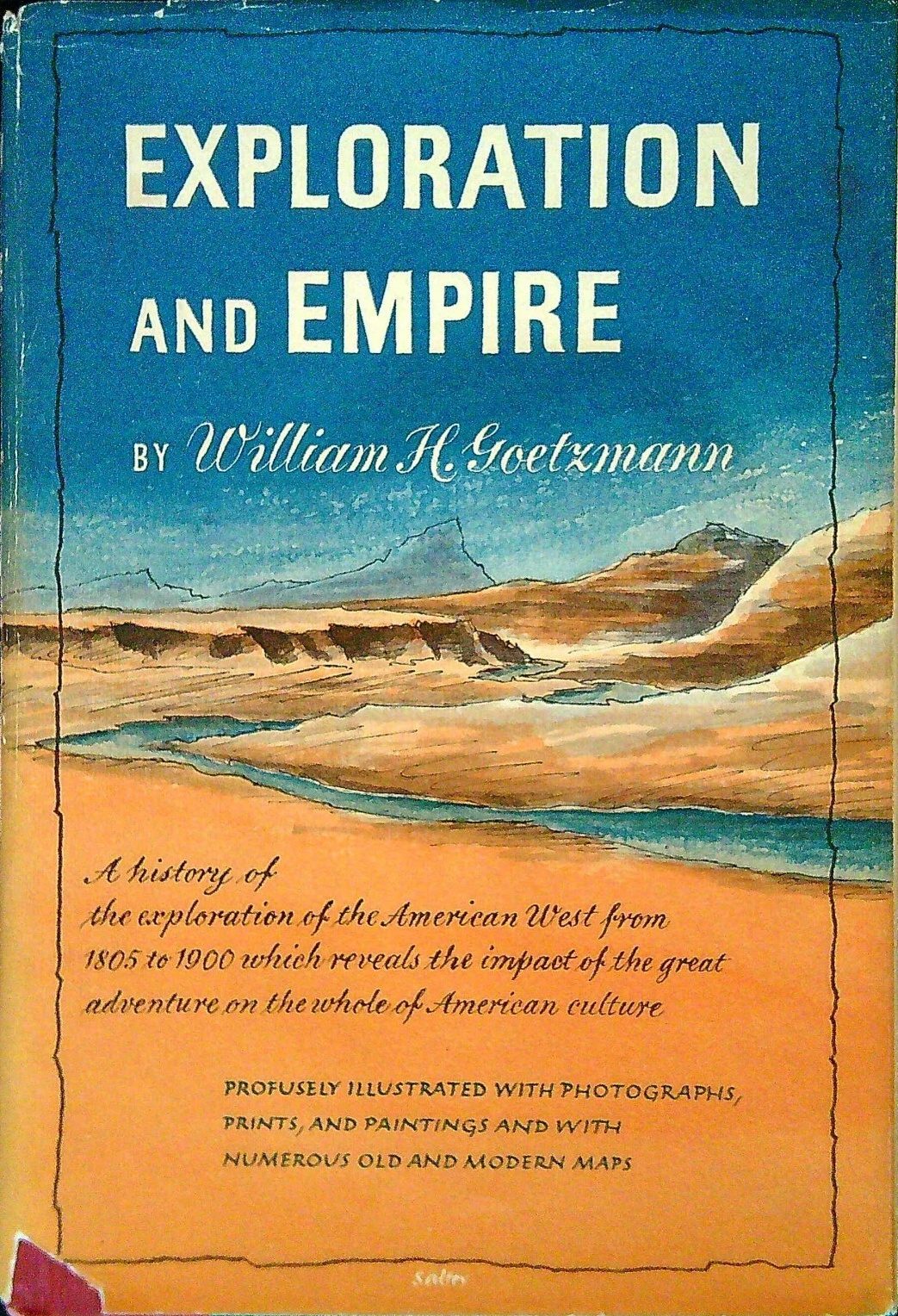Hardcover, 656 pages
English language
Published 1966 by Alfred A. Knopf.
The Explorer and the Scientist in the Winning of the American West

Hardcover, 656 pages
English language
Published 1966 by Alfred A. Knopf.
This, the first over-all account of the exploration of the American West in all its major phases, is based on research in primary materials and offers a significant interpretation of this grand American experience. It is as well a cultural and intellectual history.
William H. Goetzmann began the research for this monumental narrative when he wrote doctoral dissertation, Army Exploration in the American West, which won the John Addison Porter Prize and was published by Yale University Press in 1959. Exploration and Empire is a comprehensive narrative study in depth of the early informal discoveries of trappers and traders and of the formal expeditions of a host of scientific, military, and government figures who together made their fellow Americans aware of the grand country that lay west of the 100th Meridian.
Beginning with the return of Lewis and Clark and ending with the retirement of John Wesley Powell from …
This, the first over-all account of the exploration of the American West in all its major phases, is based on research in primary materials and offers a significant interpretation of this grand American experience. It is as well a cultural and intellectual history.
William H. Goetzmann began the research for this monumental narrative when he wrote doctoral dissertation, Army Exploration in the American West, which won the John Addison Porter Prize and was published by Yale University Press in 1959. Exploration and Empire is a comprehensive narrative study in depth of the early informal discoveries of trappers and traders and of the formal expeditions of a host of scientific, military, and government figures who together made their fellow Americans aware of the grand country that lay west of the 100th Meridian.
Beginning with the return of Lewis and Clark and ending with the retirement of John Wesley Powell from the United States Geological Survey, the book focuses on exploration as an important cultural activity and seeks to relate the works of the explorers to the intellectual, social, economic, and political development of America as a whole. Exploration and Empire is divided into three major sections: "Exploration and Imperialism" (1800–1845), a period begun by trappers and traders—men such as Lisa, Ashley, Bridger, and Peter Skene Ogden—that developed into a clash over empire, with the English on the north and the Spanish to the south; "The Great Reconnaissance and Manifest Destiny" (1845–60), a period of border exploration and settlement and of the Army's search for a feasible route for the transcontinental railway; and "Exploration and the Great Survey" (1860–1900), the period of military and scientific surveys of the resources of the Great West.
Narrative accounts of nearly all Western expeditions in the century are included, but the book is intended to be something more than narrative history. It traces the development of science and exploration in the West from the first such activity to the complex geological surveys of the later period and notes the impact of Western experience upon the development of Eastern ideas and institutions as well as influence of Eastern ideas and preconceived images upon the patterns of settlement in the West.